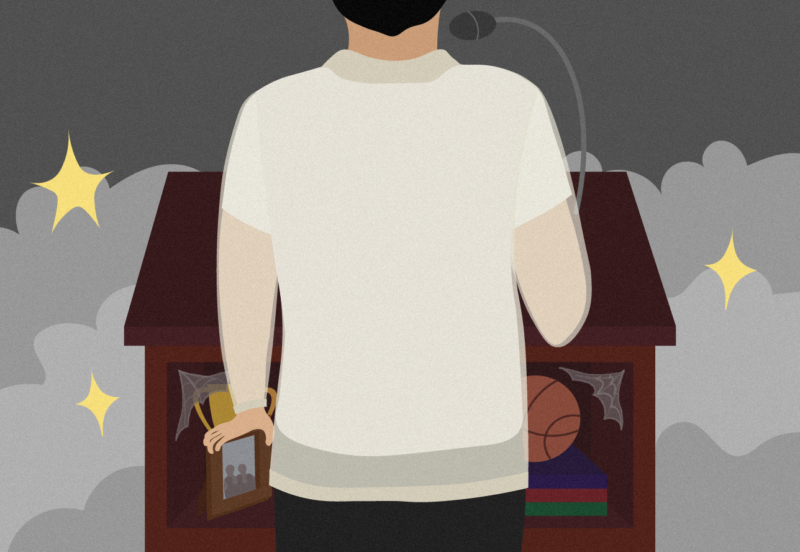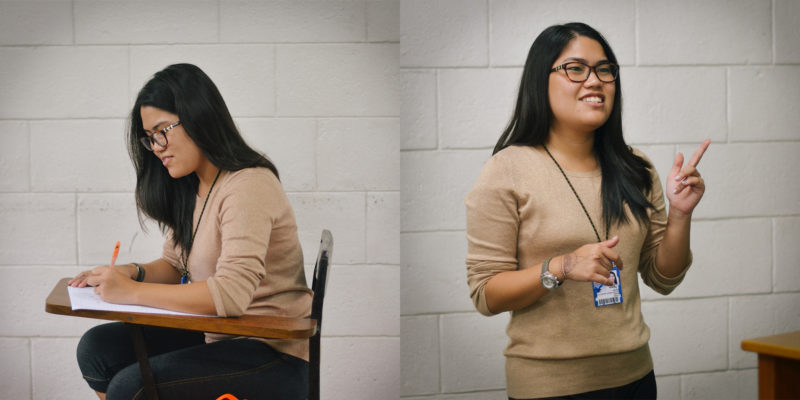IN THIS day and age of online expression and activity, statements like “Did you see what so-and-so posted last night?” easily become conversation starters and hot topics. Social media provides its users with platforms for voicing out their opinions; consequently, these opinions and statements of self-expression have the capacity to reach an exponentially increasing number of individuals.
Through likes, shares, and re-tweets, a social media user’s posts become more available for the public to see, react to, and—of course—talk about. The situation is layered with a whole other dynamic of complexity when said social media user is the very same person who stands before you in class, returning checked research papers, or beginning the lecture for the day.
In some cases, the words and actions of Ateneo faculty outside the university setting—especially on social media—have garnered attention, both positive and negative. As many members of the student body may have witnessed on their timelines or newsfeeds, a flurry of excitement, dissent, or other ambiguous reactions tend to surround posts or tweets of our instructors and professors. Sometimes, reactions stem not just from within the Ateneo community, but from general public discussion as well.
At the same time, this causes us to wonder: what guides the faculty in their social media activity? How much weight does being an Ateneo employee bear on what they say or do online? Should they even feel the need to think twice about what to post? Can’t they post whatever they feel like posting – like regular people – without all the fuss and attention?
Comments, likes, and trolls
When it comes to the online activity of the faculty, social media posts concerning politics or social issues tend to gain a relatively more widespread attention. Especially now in a more polarized political environment, positive and negative feedback can be easily felt. Jose Ma. Edito Tirol, Assistant Professor of the History Department, shares how his posts on matters like historical revisionism, the Marcos burial, and Bongbong Marcos’s almost-victory for the vice presidency garnered the most likes and positive comments on Facebook.
Two of Tirol’s lectures have also been recorded on video and posted on Facebook, gaining around thirteen thousand views. While these were shared and liked by many of his current and former students, he also discovered a few “hate posts”. When asked about how he responds to these angry comments, he says, “I’ll be validating their comments by responding. So I just look at it [positive feedback or comments] for amusement, like, ‘oh that’s nice; that’s affirming.’”
“If they [Facebook users] want to read my post, fine. If you disagree with my post, fine. But at least I’ve said my piece and I’m hoping that somewhere out there, in the internet universe, some students still value my opinion and that [opinion] could hopefully guide them on what to do next or how to think next,” Tirol shares.
In contrast to this, Jacqueline Tolentino, Instructor at the Philosophy Department, uses social media for more personal reasons. “I think it’s valuable in general—since it keeps me up to date with the news, which is always helpful—but it’s not directly necessary to being a teacher,” Tolentino says.
However, Tolentino agrees with Tirol’s method of dealing online trolls. “My usual strategy is to address the trolls’ concerns without ever mentioning them – no way am I sending traffic their way –and then blocking them permanently,” she says.
Meanwhile, other members of faculty have been on the receiving end of more blatant and extreme responses on social media: One such individual is Nathania Chua, Instructor at the Quantitative Methods and Information Technology Department. “Since I’m vocal in dissenting against the administration, I have become the target of many well-funded troll networks,” she says.
In the latter part of 2016, Chua was publicly addressed by social and political activist Sass Rogando Sasot regarding the former’s tweets on blogger Mocha Uson. After this incident, many social media users posted poisonous comments against Chua. “I can be very sharp in how I critique or even condemn certain issues and this usually means getting harassed online or even sent threats,” shares Chua.
Chua, in spite of these attacks, understands her role as a professor and continues to speak out. “It is easy to be judged so quickly especially when you have thousands of followers, most of which do not actually personally know me. It can be overwhelming at times, but I know that given my position and privilege, it’s my moral obligation to speak out and not be silenced at times like these,” she says.
Reining it in
Taking into account some of the experiences of the faculty in relation to reactions they have received on social media, is there a way to measure how much is too much? Is there a definite standard against which faculty conduct on social media platforms is compared? And if there is, what is the standard that the school uses to hold faculty members accountable for their conduct?
Milet Tendero, Assistant to the Vice President for the Loyola Schools (VPLS), says that the Office of the VPLS is currently engaged in the process of consultation and of drafting guidelines for faculty conduct. A faculty committee was convened by the VPLS and although there is no definite date of release at the moment, they are aiming at completing the guidelines for implementation in SY 2017-2018.
With a university-wide set of guidelines still underway, some faculty may have developed their own personal do’s and don’ts for their social media activity. For some, being a professor comes first and foremost. “My rule is, as much as possible, I’m a professor. So at least [I have to] sound like one. I am cognizant that as a member of the Ateneo community, the Ateneo stands for something. So I try to speak as I would hope the university itself would speak–you know, as one of the voices of the university,” says Tirol.
Posting on Facebook, for Tirol, is primarily a tool to educate students beyond the reach of a classroom. “The way a lot of young people think, it’s based on insufficient data. So I try to teach younger people that this is the clearer way to think, the clearer way to process what is going on—not just a short-term or impulsive reaction,” he says.
Tirol shares, “My mother always tells me, ‘please sound your age; please sound like it is your intelligence; please sound like you earned a degree; please keep in mind that anything you say or do not say may influence other people.’ That’s pretty great advice.”
When posting online, Tolentino has one simple rule. “If you have nothing nice to say, then don’t say anything at all,” she says. However, she concedes that, “with our current political climate, sometimes it becomes necessary to say not nice things, which means that I usually break the aforementioned rule.”
When dealing with students on social media, she believes in keeping a more professional demeanor. She shares that it’s “okay to be friendly with students online, but there should still be a clear line between student and teacher.”
She also expressed her gratitude to the school for allowing its professors to be active online stating that, “Ateneo is pretty tolerant when it comes to what positions and opinions teachers can have and be open about.”
As for Chua, she says that she does not impose any particular rules on herself for her activity on social media. “I view these platforms as mere extensions of myself to reach more people. I also don’t think my online ‘persona’ is any different from who I am offline, which is why I tend to sound very casual. I just have to constantly remind myself that any of these posts or tweets can be taken out of context and maliciously used against me,” she says.
Still, she is aware of her affiliation with the university. “Being an Atenean, I do my best to live by several of the university’s values and principles consistently, whether online or offline,” she says.
“Real battles are won offline. We can’t let our socio-political involvement end with shared posts, Facebook statuses or tweets. Our capacity as citizens to enact change is far too powerful to be contained in 140 characters,” she adds.
Eagle’s shadow
Can professors post whatever they feel like posting? While the school has given no definitive answer as of press time, it is clear that some informal guidelines direct how professors behave online.
This is not because professors have to be necessarily held to a higher moral standard; neither is it because professors have to abide by the ideology of the Ateneo. Professors aren’t expected to blindly march by the school’s drum, as that is not their job.
The fact of the matter is that professors teach students. When professors teach, they help cultivate different ideas and beliefs in each of their students. Professors, being figures of knowledge and learning, have a great deal of influence on their students and their peers as well. Because of this, it is ultimately unavoidable that there will be a bigger fuss about something a professor would post on social media.
Professors can and do take advantage of this fuss they create on social media. They use what they post on social media to start conversations with their current and previous students alike. As Tirol says, “I want to shape my students even after they’ve graduated or even after they’re in the classroom.”
On the administration’s side, it is understandable that there have to be guidelines about using social media. These are meant to protect the integrity of the university and the professors alike.
As Tirol said above, the professors may act as the voices of the school in the public arena. In the end, the school has to allow its professors, its voices, to be completely free to speak their minds.







